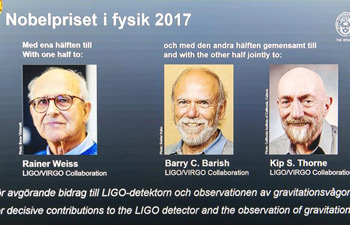STRASBOURG, France, Oct. 3 (Xinhua) -- If the European Union's (EU) position regarding Brexit negotiations was not already clear, the bloc's resolve to maintain unity was reiterated Tuesday by the European Parliament, at its plenary meeting here.
The message to the United Kingdom was that until Europe is satisfied with the first phase of talks, there will be absolutely no work on a second phase.
EU chief negotiator Michel Barnier, addressing members of European Parliament (MEPs) at the beginning of a debate on the terms and agenda for Brexit talks, once again took a firm stance.
Despite some progress on the primary negotiating issues -- citizens' rights, the northern Irish border, and an agreement on the UK's financial obligations undertaken before the Brexit vote -- insufficient ground had been made to move on to a second phase of talks.
Notably, for Barnier, this means no talks on a "transition" phase after the UK officially leaves the European bloc, and certainly no discussion of a framework for the future relationship between Britain and the EU, trade or otherwise. On this issue, Barnier has received the full support of other EU institutions, including the European Parliament, which adopted a resolution on the matter on Tuesday.
The "transition" phase, much discussed in the European and British press in recent weeks, gained more interest after British Prime Minister Theresa May gave a speech in Florence on Sept. 22, which many EU leaders and officials greeted as showing an opening of the UK's position.
In her speech, the prime minister called for a "status quo" transition period to make changes smoother. She admitted that the UK had certain financial obligations that it undertook as an EU member state before the Brexit vote and would need to honor. She also expressed a willingness to enshrine citizens' rights in the exit treaty.
"The Prime Minister's speech in Florence was conciliatory, but speeches are not negotiation positions," European Commission President Jean-Claude Juncker said Tuesday at the beginning of the Brexit debate at the European Parliament.
Juncker's statement revealed a growing frustration within the EU regarding the lack of clarity in the British position on Brexit. For all of Europe's show of unity, the UK has not been able to show a unified front, with divisions visible in Theresa May's cabinet, and some ministers publicly criticizing the Prime Minister herself.
German MEP Manfred Weber, chair of the European People's Party went so far as to call on Theresa May to sack Boris Johnson, the British foreign secretary who has publicly clashed with the prime minister's position, for the sake of moving forward with negotiations. Weber's bold call reflects an increasing frustration over the confusion regarding who speaks for Britain in Brexit talks.
European leaders seem aware that the EU cannot afford such indecisiveness, with Barnier admitting that European unity cannot be "decreed" but only "constructed", and that "the future of the union is much more important than Brexit".
The chief negotiator's comments fall in a tense and dangerous political climate, just days after a non-sanctioned referendum on independence for the Catalonia region in Spain saw violent police clashes with activists on Sunday.
This made European leaders worry about a possible domino effect in other countries with separatist and independence movements. In such a climate, a lack of unity in Brexit negotiations could prove fatal for the EU, especially after years of economic, political and migration crises have tested the bloc's survival.
What is unclear is whether Britain can afford a divided position, with the day it will automatically exit the EU -- March 30, 2019 -- drawing ever-nearer.
If an agreement has not been reached by that date, this will mean a so-called "Hard Brexit" scenario, with future relations between the EU and the UK reverting back to World Trade Organization (WTO) rules.
Another round of talks is scheduled for next week, ahead of the European Summit on Oct. 19 and 20, in which European leaders will assess the progress of negotiations. Unless the British negotiating team arrives with a unified position, however, the results are very likely to be found as still insufficient for passage to a second phase of talks.

















